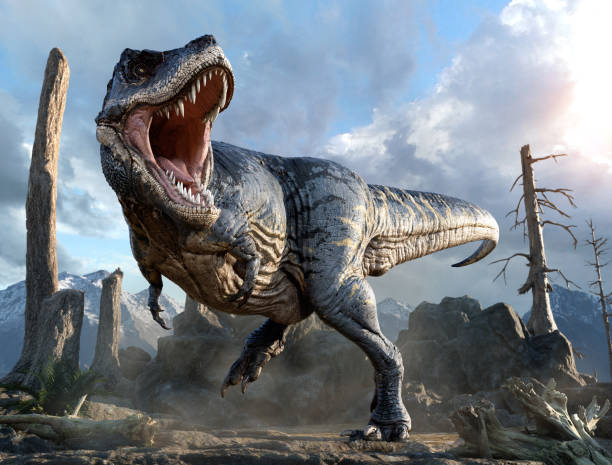Harshita Mathur, Pune
Fossil bones of a 167-million-year-old long-necked, plant-eating dicraeosaurid dinosaur have been unearthed in Jaisalmer, Rajasthan. These prehistoric remains were discovered by scientists from the Geological Survey of India (GSI) and the Indian Institute of Technology (IIT) Roorkee.
The dinosaur specimen has been named “Tharosaurus Indicus” by scientists in honor of the Thar Desert. Research published in ‘Scientific Reports’, an international journal by Nature Publishers, reveals that experts believe the bones belong to a new dinosaur species previously not discovered by humans. The fossils were collected from Jaisalmer in 2018 and underwent nearly five years of study by a team of six researchers from the two institutes.
Prof. Sunil Bajpai, chair professor of vertebrate paleontology in the Department of Earth Sciences at IIT-Roorkee, stated that this discovery was made possible through a systematic fossil exploration and excavation program initiated by GSI in 2018. The program focused on the Middle Jurassic (167 Ma) rocks of the Jaisalmer region. GSI officers Krishna Kumar, Pragya Pandey, and Triparna Ghosh collected the fossils under the guidance of Debasis Bhattacharya for analysis.
According to researchers, as the fossils were found in rocks estimated to be 167 million years old, the Indian sauropod is not only the oldest known dicraeosaurid but also the oldest diplodocoid (a broader group that includes dicraeosaurids and other closely related sauropods). Although dicraeosaurid dinosaur fossils had previously been discovered in Africa, China, and the North, and South Americas, they had never been found in India.
By Harshita Mathur, Pune
Fossil bones of a 167-million-year-old long-necked, plant-eating dicraeosaurid dinosaur have been unearthed in Jaisalmer, Rajasthan. These prehistoric remains were discovered by scientists from the Geological Survey of India (GSI) and the Indian Institute of Technology (IIT) Roorkee.
The dinosaur specimen has been named “Tharosaurus Indicus” by scientists in honor of the Thar Desert. Research published in ‘Scientific Reports’, an international journal by Nature Publishers, reveals that experts believe the bones belong to a new dinosaur species previously not discovered by humans. The fossils were collected from Jaisalmer in 2018 and underwent nearly five years of study by a team of six researchers from the two institutes.
Prof. Sunil Bajpai, chair professor of vertebrate paleontology in the Department of Earth Sciences at IIT-Roorkee, stated that this discovery was made possible through a systematic fossil exploration and excavation program initiated by GSI in 2018. The program focused on the Middle Jurassic (167 Ma) rocks of the Jaisalmer region. GSI officers Krishna Kumar, Pragya Pandey, and Triparna Ghosh collected the fossils under the guidance of Debasis Bhattacharya for analysis.
According to researchers, as the fossils were found in rocks estimated to be 167 million years old, the Indian sauropod is not only the oldest known dicraeosaurid but also the oldest diplodocoid (a broader group that includes dicraeosaurids and other closely related sauropods). Although dicraeosaurid dinosaur fossils had previously been discovered in Africa, China, and North, and South Americas, they had never been found in India.
